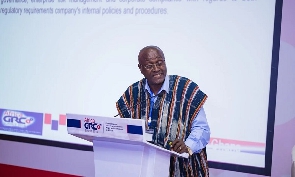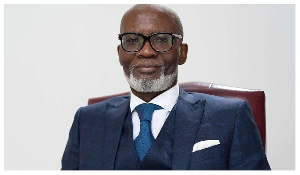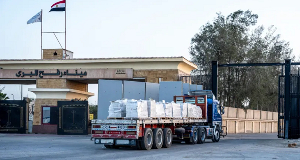More than 50% of foreign remittances entering Ghana cannot be properly accounted for, and this issue arises from the deregulation of the foreign remittances sector, Graphic Business reports.
The portal said the introduction of fintech companies following the Payment Systems and Services Act of 2019 has negatively impacted the stability of the local currency.
Banking Consultant Dr. Richmond Atuahene stated in an interview that if all remittances were tracked accurately, they could have significantly boosted the local currency.
According to a World Bank report, Ghana received $4.5 billion in 2021 and $4.7 billion in 2022. However, the Auditor-General's Report on the Consolidated Statements of Foreign Exchange Receipts shows remittances for those years amounted to $2.11 billion and $2.12 billion, respectively.
Dr. Atuahene pointed out that this reveals weaknesses in the country's remittance data compared to the World Bank's assessment. The World Bank tracks remittance figures from the source, implying that the Bank of Ghana (BoG) may not be tracking all remittances.
He said that could be a result of the deregulation of the sector,
noting that the fintechs might not be declaring their remittances to the BoG, in a clear violation of the Foreign Exchange Act.
"This may be due to the deregulation of the sector, with fintech companies potentially not declaring their remittances to the BoG, in violation of the Foreign Exchange Act."
The discrepancies between the World Bank report and BoG figures raise concerns, indicating that more than half of the remittances received in Ghana are not reflected in the BoG's balance of payments.
“When you take the World Bank report and the BoG figures, you see some discrepancies between the two.
So it’s either we are not tracking all the remittances because it
seems more than half of the remittances that come into the country are not reflecting on the BoG’s balance of payment.”
“In 2019, we passed the Payment Systems and Services Act which was accompanied by a National Payment Strategic Plan which created the enabling environment for other private Money Transfer Companies (MTC) and Fintechs to play an active role in receiving remittances and it appears their activities are the reason why we are not capturing all the remittances.” he said.
Dr. Atuahene believes that fintech companies holding onto foreign currencies instead of surrendering them to the BoG is a reason for the local currency's volatility. Proper tracking of all remittances could benefit the country's economy significantly.
“When you go into the Foreign Exchange Act, it states categorically that no institution can hold foreign currency except BoG or the authorised dealer banks but due to the introduction of these MTCs and fintechs, people are now sending their remittances through them and they end up holding on to the foreign currencies and don’t surrender
them to the BoG.”
“If all these funds were coming into the banking system, the banks would have used it in supporting payments of imports and BoG wouldn’t have to come in to sell forex to the Bulk Oil Distributing Companies (BDCs).”
“I worked as a foreign exchange dealer in a bank and we used to go to some of these MTCs and Fintechs for foreign currencies, which is a clear indication that they have been holding on to them,” he disclosed.
He further called for a forensic audit of all remittances coming into the country to identify shortcomings and leaks.
Additionally, he recommends that the Ministry of Finance, the Ministry of Foreign Affairs and Regional Integration, and the Bank of Ghana work with development partners like the World Bank to determine whether remittances are a permanent fixture in Ghana's Balance of Payments.
ID/MA
Watch the latest edition of BizTech below:
Ghana’s leading digital news platform, GhanaWeb, in conjunction with the Korle-Bu Teaching Hospital, is embarking on an aggressive campaign which is geared towards ensuring that parliament passes comprehensive legislation to guide organ harvesting, organ donation, and organ transplantation in the country.
Business News of Saturday, 28 October 2023
Source: www.ghanaweb.com













